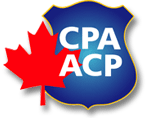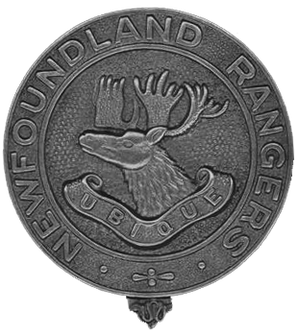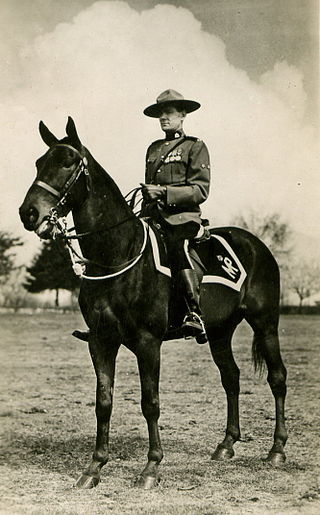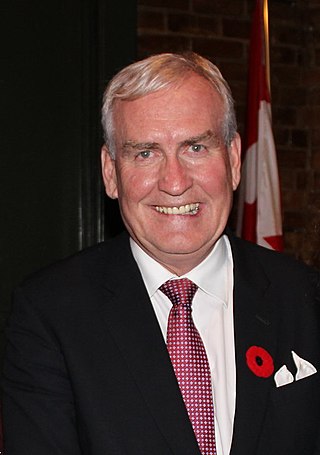
The Royal Canadian Mounted Police is the national police service of Canada. The RCMP is an agency of the Government of Canada; it also provides police services under contract to 11 provinces and territories, over 150 municipalities, and 600 Indigenous communities. The RCMP is commonly known as the Mounties in English.

The Canadian Security Intelligence Service is a foreign intelligence service and security agency of the federal government of Canada. It is responsible for gathering, processing, and analyzing national security information from around the world and conducting covert action within Canada and abroad. CSIS reports to the Minister of Public Safety, and is subject to review by the National Security and Intelligence Review Agency.

Giuliano Zaccardelli is an Italian-born Canadian retired police officer who served as the 20th commissioner of the Royal Canadian Mounted Police (RCMP) from 2000 to 2006. His departure from the RCMP was linked to the force's involvement in the Maher Arar affair. Zaccardelli was later impugned during inquiries into irregularities in the management of the RCMP's pension and insurance fund. He subsequently became a senior official with Interpol in Lyon, France, heading its OASIS Africa program, which aims to help African police forces more effectively combat international crime.
Joseph Philip Robert Murray is a Canadian retired police officer who served as the 19th commissioner of the Royal Canadian Mounted Police (RCMP) from 1994 to 2000.
Stuart Zachary Taylor Wood, CMG served as the ninth Commissioner of the Royal Canadian Mounted Police, from March 6, 1938 to April 30, 1951.

William Leonard Higgitt was the 14th commissioner of the Royal Canadian Mounted Police (RCMP), holding office from 1969 to 1973, and President of the International Criminal Police Organization (Interpol) from 1972 to 1976. Leonard Higgitt's background in intelligence and counterintelligence with the RCMP during and after World War II made him the preferred choice as RCMP Commissioner at what was the height of the Cold War. Higgitt's tenure as Canada's top spy, first, and then as RCMP Commissioner, also coincided with the civil rights movement in the United States, which was part of a period of broader political unrest and social change in Canada, including the Quebec nationalist movement and first-ever diplomatic negotiations in Stockholm between Canada and Communist China. Higgitt's time as Commissioner was marked by his efforts to balance a traditional view of the Mounties in the eye of the public, and a trust in the RCMP attending that view, with more modern, high-tech, and legally complex policing methods, including surveillance and data-gathering practices that found the RCMP facing increasing media and judicial scrutiny.

David J. Boothby is a retired Canadian police officer who served as the final chief of the Metro Toronto Police from 1995 to 1997, and once the Metro Toronto Police was amalgamated into Toronto Police Service, he served as it's chief until his retirement in 2000.

The Canadian Police Association (CPA) is an advocacy and fundraising organization that is also a registered lobbyist with the Canadian government. The CPA represents Canadian police officers. It is divided into 27 regional chapters at municipal, provincial, and federal levels. Each of these chapters is represented by either a president or director.
John Benjamin Clark Watkins was a Canadian diplomat and scholar who served as Canadian ambassador to the Soviet Union from 1954 to 1956. Describing Watkins as "sophisticated, erudite and fluent in Russian", Michael Dobbs of The Washington Post wrote that he was the "perfect ambassador" to Moscow. He is credited with organizing a historic meeting between Soviet Premier Nikita Khrushchev and Canadian External Affairs Minister Lester B. Pearson.
Integrated National Security Enforcement Teams are Canadian counterterrorist, counter-foreign interference, and counter-espionage units operating under the auspices of Public Safety Canada. These federal investigative teams were formed in 2002 in response to the September 11 attacks.

The Newfoundland Ranger Force was the police force of the Dominion of Newfoundland. It provided law enforcement and other government services to outports for 15 years. It existed from 1935 to 1949, at which point it was merged into the Royal Canadian Mounted Police (RCMP). 204 men served as Rangers during its existence, though at any given time the force did not exceed 72 members.

The Royal Canadian Mounted Police (RCMP) has a history dating back to 1873 and has been involved in several high-profile controversies.
Luc Portelance was a Canadian police officer and civil servant. He served as president of the Canada Border Services Agency (CBSA) from November 2010 until his retirement in June 2015. From 1979, he worked for the Royal Canadian Mounted Police (RCMP). From 1982, he worked for the RCMP Security Service in Quebec Region. From 1984 to 2009, he was a Canadian Security Intelligence Service (CSIS) officer. He was deputy director general in charge of the Counterintelligence Branch, director general for the Quebec Region, and assistant director. From 2007 to 2009, he was CSIS deputy director for operations under Jim Judd; succeeding Jack Hooper, who did not get along with Director Jim Judd. From August 2008, he was CBSA executive vice president.

World Tamil Movement is a non-profit organization designated as a terrorist organization by Canada. The organization was created in 1986 and run by Canadians of ethnic Tamil heritage. Its president was Sitha Sithampalam until June 2008. The organisation has functioned as a community group that offers services such as translation, vocational training and a library for the Tamil population in Toronto, Ontario, Canada. It further organised cultural and sports leagues, and classes to help women and children integrate into the larger Canadian society. It was further involved in relief efforts for the 2004 Indian Ocean earthquake. It has also openly declared itself to share the politics of Sri Lankan Tamil nationalism, stating "It's no secret that the World Tamil Movement supports the right of the Tamil people to self-determination in the Northern and Eastern part of Sri Lanka. This is a political position – perhaps one that not everyone will agree with, but one that we are constitutionally entitled to hold."

Integrated Security Unit (ISU) is a joint-services infrastructure security unit created to secure major events in Canada. This administrative and operational entity was first created by the Royal Canadian Mounted Police (RCMP) in 2003.

Robert Wilfred Paulson, is a former Commissioner of the Royal Canadian Mounted Police. He retired from the RCMP at the end of June 2017.

Kevin Michael Vickers is a Canadian politician, former diplomat, and retired police officer. He served as the leader of the New Brunswick Liberal Association from 2019 to 2020, a retired Canadian diplomat, former Sergeant at Arms and former Royal Canadian Mounted Police (RCMP) officer. He was the Canadian Ambassador to Ireland from 2015 until 2019 and the ninth Sergeant-at-Arms of the House of Commons of Canada from 2006 to 2015.
Dany "Dany Boy" Kane was a Canadian criminal who was a compliant police informant at the same time. Kane worked for the Royal Canadian Mounted Police (RCMP) as an informant inside the Hells Angels for many years, and provided information to the police on the Hells Angels. Kane was found dead of an apparent suicide in the garage of his suburban Montreal home in the summer of 2000.
The Hells Angels Motorcycle Club, an international outlaw biker gang, has been involved in multiple crimes, alleged crimes, and violent incidents in Canada. The Criminal Intelligence Service Canada (CISC) has designated the Hells Angels an outlaw motorcycle gang. Hells Angels MC have been linked with drug trafficking and production, as well as many violent crimes including murder, in Canada.











